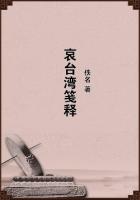Karl Marx Wage Labour and Capital Introduction to Karl Marx's Wage Labor and Capital by Fredrick Engels This pamphlet first appeared in the form of a series of leading articles in the Neue Rheinische Zeitung, beginning on April 4th, 1849.The text is made up of from lectures delivered by Marx before the German Workingmen's Club of Brussels in 1847.The series was never completed.The promise "to be continued", at the end of the editorial in Number 269 of the newspaper, remained unfulfilled in consequence of the precipitous events of that time:
the invasion of Hungary by the Russians [Tsarist troops invaded hungary in 1849 to keep the Austrian Hapsburg dynasty in power] , and the uprisings in Dresden, Iserlohn, Elberfeld, the Palatinate, and in Baden [Spontaneous uprisings in Germany in May-July 1849, supporting the Imperial Constituion which were crushed in mid-July] , which led to the suppression of the paper on May 19th, 1849.And among the papers left by Marx no manuscript of any continuation of these articles has been found.
"Wage-Labor and Capital" has appeared as an independent publication in several editions, the last of which was issued by the Swiss Co-operative Printing Association, in Hottingen-Zurich, in 1884.Hitherto, the several editions have contained the exact wording of the original articles.But since at least 10,000 copies of the present edition are to be circulated as a propaganda tract, the question necessarily forced itself upon me, would Marx himself, under these circumstance, have approved of an unaltered literal reproduction of the original?
Marx, in the '40s, had not yet completed his criticism of political economy.This was not done until toward the end of the fifties.Consequently, such of his writings as were published before the first installment of his Critique of Political Economy was finished, deviate in some points from those written after 1859, and contain expressions and whole sentences which, viewed from the standpoint of his later writings, appear inexact, and even incorrect.Now, it goes without saying that in ordinary editions, intended for the public in general, this earlier standpoint, as a part of the intellectual development of the author, has its place; that the author as well as the public, has an indisputable right to an unaltered reprint of these older writings.In such a case, I would not have dreamed of changing a single word in it.But it is otherwise when the edition is destined almost exclusively for the purpose of propaganda.In such a case, Marx himself would unquestionably have brought the old work, dating from 1849, into harmony with his new point of view, and I feel sure that I am acting in his spirit when I insert in this edition the few changes and additions which are necessary in order to attain this object in all essential point.
Therefore, I say to the reader at once: this pamphlet is not as Marx wrote it in 1849, but approximately as Marx would have written it in 1891.
Moreover, so many copies of the original text are in circulation, that these will suffice until I can publish it again unaltered in a complete edition of Marx's works, to appear at some future time.
My alterations centre about one point.According to the original reading, the worker sells his labor for wages, which he receives from the capitalist; according to the present text, he sells his labor-power.
And for this change, I must render an explanation: to the workers, in order that they may understand that we are not quibbling or word-juggling, but are dealing here with one of the most important points in the whole range of political economy; to the bourgeois, in order that they may convince themselves how greatly the uneducated workers, who can be easily made to grasp the most difficult economic analyses, excel our supercilious "cultured"folk, for whom such ticklish problems remain insoluble their whole life long.
Classical political economy [1] borrowed from the industrial practice the current notion of the manufacturer, that he buys and pays for the labor of his employees.This conception had been quite serviceable for the business purposes of the manufacturer, his bookkeeping and price calculation.But naively carried over into political economy, it there produced truly wonderful errors and confusions.
Political economy finds it an established fact that the prices of all commodities, among them the price of the commodity which it calls "labor", continually change; that they rise and fall in consequence of the most diverse circumstances, which often have no connection whatsoever with the production of the commodities themselves, so that prices appear to be determined, as a rule, by pure chance.As soon, therefore, as political economy stepped forth as a science, it was one of its first tasks to search for the law that hid itself behind this chance, which apparently determined the prices of commodities, and which in reality controlled this very chance.Among the prices of commodities, fluctuating and oscillating, now upward, now downward, the fixed central point was searched for around which these fluctuations and oscillations were taking place.In short, starting from the price of commodities, political economy sought for the value of commodities as the regulating law, by means of which all price fluctuations could be explained, and to which they could all be reduced in the last resort.
And so, classical political economy found that the value of a commodity was determined by the labor incorporated in it and requisite to its production.















